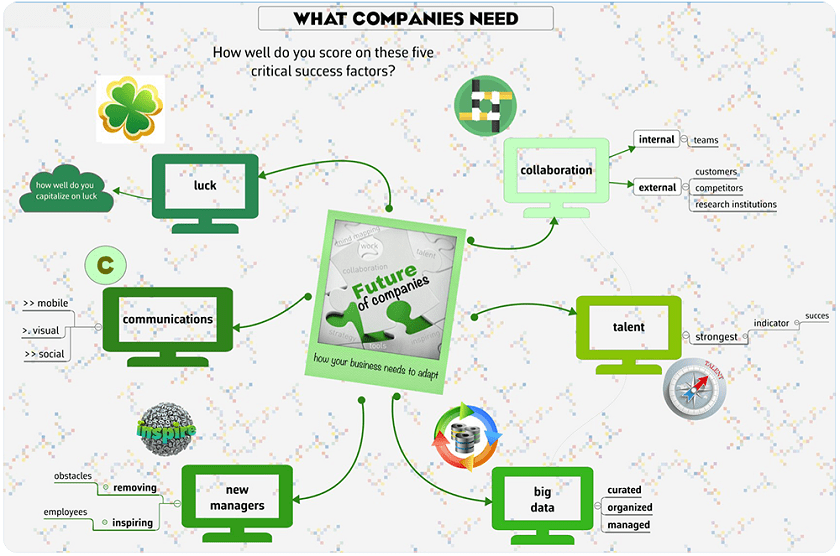What do these companies have in common: Amoco (oil), Bethlehem Steel (steel), Compaq (computers), Saab (cars), Lehman Brothers (investments), PanAm (air carrier), F.W. Woolworth (retailer), Polaroid (instant film)? Well, they all vanished. Disappeared. You will know many examples yourself. All of these companies were once very big, global operating companies. Some were disrupted like Compaq (the same happened to IBM, but it reinvented itself), others were mismanaged (like Saab and Compaq. Compaq’s CEO Eckhard Pfeiffer is on Wall Street’s list of worst CEOs in American history) or failed to respond quickly to available data on customers and markets (like Polaroid).
Can a company defend itself against these rapid changes? Cope with disruption? Deal with the fundamentally changing economy? All of these changes are too big, too fundamental to address with just a new set of rules. What is needed is a change in the company’s DNA. I like the remark in the Forbes review of the book Big bang disruption: flying is not in the lizard’s DNA.
In the mind, the map presented there are five important factors companies need to address. I am not saying the five most important ones, but important they are. Like collaboration. Creating a collaborative organization is not an option anymore, it is a must. Not only within the company but beyond its borders as well.
*Mind maps such as this one can be easily made with iMindQ.
The success of Apple demonstrates the importance of hiring (and keeping) talents. Curating and managing big data will give companies the means to react swiftly when needed. The success of a company is very dependent on the way it is managed. Read the chapter “Order of the day: give up control Sir!” in Ricardo Semler’s excellent book ‘The seven-day weekend’. Managers need to remove obstacles and inspire employees. That’s all.
Finally, as an interim communicator and marketing manager for the last 15 years, I have learned that communication is a soft spot in many companies. For example, sharing information is very often far from optimal, sometimes with disastrous outcomes. And yes, as I wrote in my first blog entry on Innovation, but sometimes you just need luck. And luck can’t be managed. But, the way you capitalize on luck is manageable.
A recommendation:
Big Bang Disruption: Strategy in the Age of Devastating Innovation by Larry Downes and Paul Nunes – published by Penguin in 2014.
About the author
Hans Buskes is a business consultant, marketing communications manager and mind mapper. He’s author of several mind map books and mind map blogger on Mastermindmaps.





